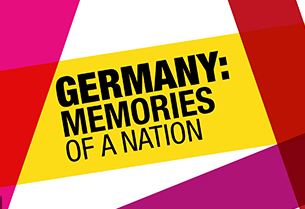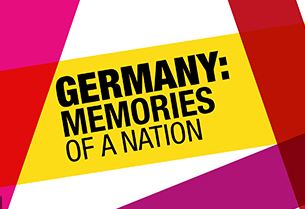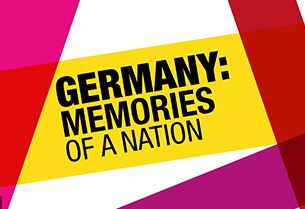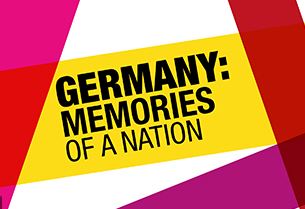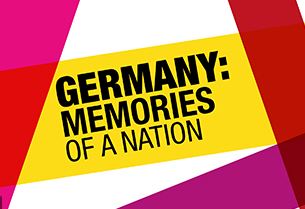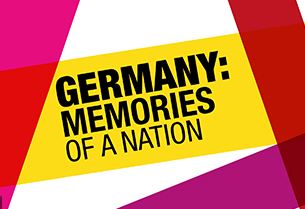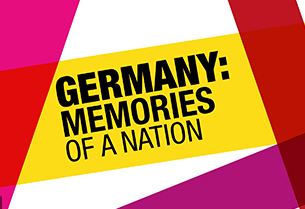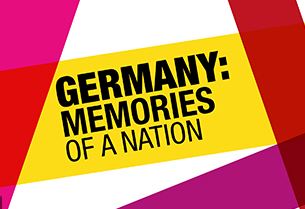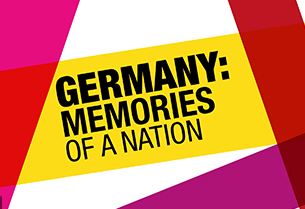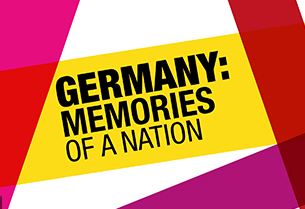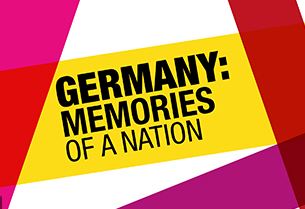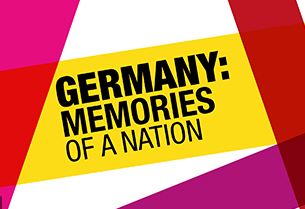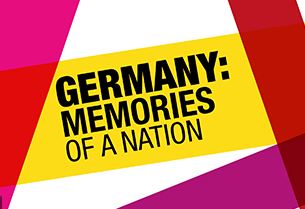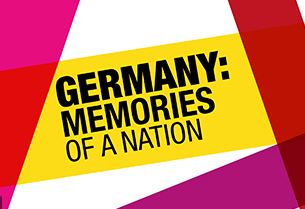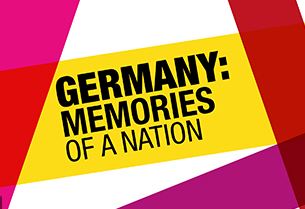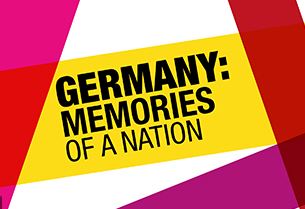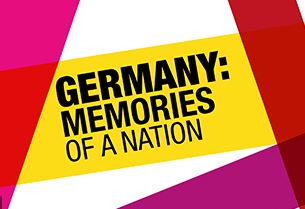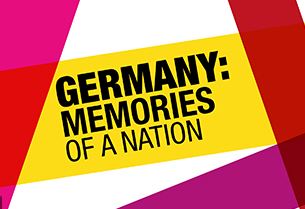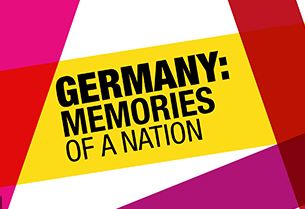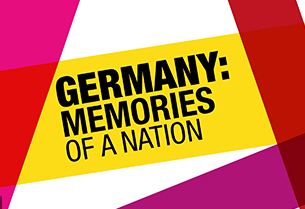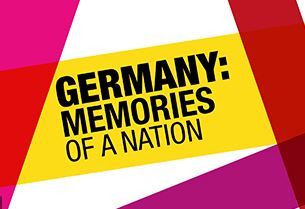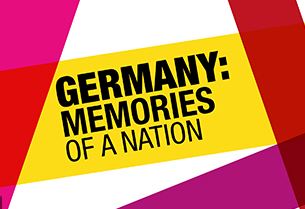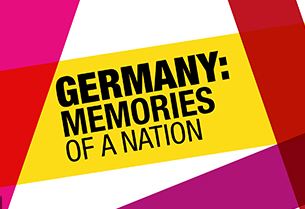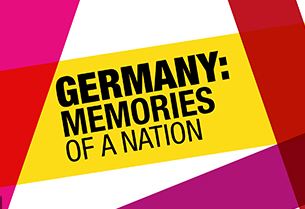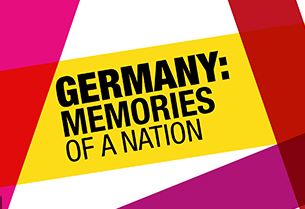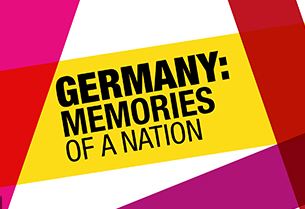Select one or more of these popular tags:
Neil MacGregor discovers how coins reveal the range and diversity of the Holy Roman Empire, with around 200 different currencies struck in the different territories of Germany.
Neil MacGregor discovers how coins reveal the range and diversity of the Holy Roman Empire, with around 200 different currencies struck in the different territories of Germany.
Neil MacGregor continues his series with a week of programmes with a focus on the things which bind Germans together - ranging from the importance of the great German writer Goethe, and the significance of the Grimm brothers\' fairy tales, to the long-standing history of German beer and sausages.
Neil MacGregor continues his series with a week of programmes with a focus on the things which bind Germans together - ranging from the importance of the great German writer Goethe, and the significance of the Grimm brothers\' fairy tales, to the long-standing history of German beer and sausages.
-
Germany: Memories of a Nation - 07 Fairy Tales and Forests: The Grimms and Caspar David Friedrich
-
BBC Radio 4
Continuing a week of programmes with a focus on the things which bind Germans together, Neil MacGregor reveals how the fairy tales collected by the Grimms and the landscape art of Caspar David Friedrich played a vital role in re-establishing an identity for German-speaking people who had been defeated by Napoleon.
Continuing a week of programmes with a focus on the things which bind Germans together, Neil MacGregor reveals how the fairy tales collected by the Grimms and the landscape art of Caspar David Friedrich played a vital role in re-establishing an identity for German-speaking people who had been defeated by Napoleon.
Continuing his focus on the things which bind Germans together, Neil MacGregor examines the life and work of Goethe, the greatest of all German poets: \"There is a case for arguing that if Americans are one nation under God, the Germans are one nation under Goethe.
Continuing his focus on the things which bind Germans together, Neil MacGregor examines the life and work of Goethe, the greatest of all German poets: \"There is a case for arguing that if Americans are one nation under God, the Germans are one nation under Goethe.
Neil MacGregor focuses on two great emblems of Germany\'s national diet: beer and sausages. He visits Munich to find out how regional specialities represent centuries of regional history and diversity.
Neil MacGregor focuses on two great emblems of Germany\'s national diet: beer and sausages. He visits Munich to find out how regional specialities represent centuries of regional history and diversity.
Neil MacGregor visits Aachen cathedral to examine the legacy of Charlemagne (c. 747-c. 814) - was he a great French ruler, or was he Charles the Great, a German? And what is the significance of a very fine replica of the Imperial Crown?
Neil MacGregor visits Aachen cathedral to examine the legacy of Charlemagne (c. 747-c. 814) - was he a great French ruler, or was he Charles the Great, a German? And what is the significance of a very fine replica of the Imperial Crown?
Neil MacGregor focuses on the religious sculptures of Riemenschneider (c1460- 1531), whose reputation as an artist has steadily risen. He is seen as a supreme sculptor, working in a peculiarly German medium, limewood, but articulating the sensibilities of a continent.
Neil MacGregor focuses on the religious sculptures of Riemenschneider (c1460- 1531), whose reputation as an artist has steadily risen. He is seen as a supreme sculptor, working in a peculiarly German medium, limewood, but articulating the sensibilities of a continent.
-
Germany: Memories of a Nation - 14 Iron Nation
-
BBC Radio 4
Neil MacGregor charts the role of iron in 19th century Prussia, an everyday metal whose uses included patriotic jewellery and the Iron Cross, a military decoration to honour all ranks.
Neil MacGregor charts the role of iron in 19th century Prussia, an everyday metal whose uses included patriotic jewellery and the Iron Cross, a military decoration to honour all ranks.
Neil MacGregor reflects on the events of 1848, when black, red and gold became the colours of the flag for a united Germany, and Karl Marx and Friedrich Engels published The Communist Manifesto.
Neil MacGregor reflects on the events of 1848, when black, red and gold became the colours of the flag for a united Germany, and Karl Marx and Friedrich Engels published The Communist Manifesto.
Neil MacGregor examines the life and legacy of Johannes Gutenberg, who invented moveable type and pioneered the printing press. For many, it is the moment at which the modern world began, as the book as we know it was born. It is without doubt the point at which access to knowledge stopped being the privilege of the few.
Neil MacGregor examines the life and legacy of Johannes Gutenberg, who invented moveable type and pioneered the printing press. For many, it is the moment at which the modern world began, as the book as we know it was born. It is without doubt the point at which access to knowledge stopped being the privilege of the few.
Neil MacGregor focuses on the work of Dürer (1471-1528), arguing that he is the defining artist of Germany, his image - and his self-image - known to all Germans. He was a new kind of artist, clearly fascinated by himself, and the first great artist in Europe to paint so many self-portraits. He embodies the Renaissance idea of the artist as a hero and a star, the artist of a new world and a new technology.
Neil MacGregor focuses on the work of Dürer (1471-1528), arguing that he is the defining artist of Germany, his image - and his self-image - known to all Germans. He was a new kind of artist, clearly fascinated by himself, and the first great artist in Europe to paint so many self-portraits. He embodies the Renaissance idea of the artist as a hero and a star, the artist of a new world and a new technology.
Neil MacGregor focuses on how 18th century German chemists discovered the secrets of Chinese porcelain, known then as \'white gold\' - translucent, fine-glazed, and much-coveted. Porcelain became a lucrative source of income, and was used for prestigious diplomatic gifts
Neil MacGregor focuses on how 18th century German chemists discovered the secrets of Chinese porcelain, known then as \'white gold\' - translucent, fine-glazed, and much-coveted. Porcelain became a lucrative source of income, and was used for prestigious diplomatic gifts
Listen in pop-out player Neil MacGregor focuses on the long tradition of German metalwork, from finely-engineered clocks to the Volkswagen Beetle. German gold and silversmiths were established as the best in the world, but it was for the making of scientific instruments that Germany\'s workers of the other metals were especially renowned.
Listen in pop-out player Neil MacGregor focuses on the long tradition of German metalwork, from finely-engineered clocks to the Volkswagen Beetle. German gold and silversmiths were established as the best in the world, but it was for the making of scientific instruments that Germany\'s workers of the other metals were especially renowned.
Neil MacGregor focuses on the Bauhaus school of art and design, founded in Weimar in 1919. Our cities and houses today, our furniture and typography, are unthinkable without the functional elegance pioneered by the Bauhaus.
Neil MacGregor focuses on the Bauhaus school of art and design, founded in Weimar in 1919. Our cities and houses today, our furniture and typography, are unthinkable without the functional elegance pioneered by the Bauhaus.
Neil MacGregor charts the career of Otto von Bismarck (1815-98), known as the Iron Chancellor: he argued that the great questions of the day should be decided by \'iron and blood\'.
Neil MacGregor charts the career of Otto von Bismarck (1815-98), known as the Iron Chancellor: he argued that the great questions of the day should be decided by \'iron and blood\'.
Neil MacGregor focuses on the art of Käthe Kollwitz (1867-1945), who expresses the loss and suffering of war, especially after the death of her younger son Peter at the front in 1914.
Neil MacGregor focuses on the art of Käthe Kollwitz (1867-1945), who expresses the loss and suffering of war, especially after the death of her younger son Peter at the front in 1914.
Neil MacGregor examines the emergency money - Notgeld - created during World War One and its aftermath. Small denomination coins began to disappear because their metal was worth more than their face value.
Neil MacGregor examines the emergency money - Notgeld - created during World War One and its aftermath. Small denomination coins began to disappear because their metal was worth more than their face value.
He charts how Goebbels, Hitler\'s propaganda minister, led a process designed to purify all German culture, including books, music, paintings and pottery.
He charts how Goebbels, Hitler\'s propaganda minister, led a process designed to purify all German culture, including books, music, paintings and pottery.
Neil MacGregor visits Buchenwald, one of the earliest and largest concentration camps.
Neil MacGregor visits Buchenwald, one of the earliest and largest concentration camps.
Neil MacGregor focuses on a small hand-cart to tell the story of the forced movement of more than 12 million Germans, who fled or were forced out of Central and Eastern Europe after 1945.
Neil MacGregor focuses on a small hand-cart to tell the story of the forced movement of more than 12 million Germans, who fled or were forced out of Central and Eastern Europe after 1945.
Neil MacGregor talks to a Trümmerfrau, a woman who cleared rubble from the streets of Berlin in 1945, and focuses on a sculpture by Max Lachnit, a portrait of a Trümmerfrau made from hundreds of pieces of rubble.
Neil MacGregor talks to a Trümmerfrau, a woman who cleared rubble from the streets of Berlin in 1945, and focuses on a sculpture by Max Lachnit, a portrait of a Trümmerfrau made from hundreds of pieces of rubble.
After concentration camps like Buchenwald and extermination camps like Auschwitz, it seemed that the story of Jews in Germany must come to a full stop at the end of the war. Why would any Jew in 1945, or in 1965 for that matter, see any part of their future in Germany?
After concentration camps like Buchenwald and extermination camps like Auschwitz, it seemed that the story of Jews in Germany must come to a full stop at the end of the war. Why would any Jew in 1945, or in 1965 for that matter, see any part of their future in Germany?
Neil MacGregor focuses on Ernst Barlach\'s sculpture Hovering Angel, a unique war memorial, commissioned in 1926 to hang in the cathedral in Güstrow.
Neil MacGregor focuses on Ernst Barlach\'s sculpture Hovering Angel, a unique war memorial, commissioned in 1926 to hang in the cathedral in Güstrow.
-
Germany: Memories of a Nation - 30 Reichstag
-
BBC Radio 4
Neil MacGregor began his journey through 600 years of German history at the Brandenburg Gate in Berlin, and ends it at the Reichstag, seat of the German Parliament. These two extraordinary buildings, only a few hundred yards apart, carry in their very stones the political history of the country.
Neil MacGregor began his journey through 600 years of German history at the Brandenburg Gate in Berlin, and ends it at the Reichstag, seat of the German Parliament. These two extraordinary buildings, only a few hundred yards apart, carry in their very stones the political history of the country.
-
Great Lives - Baruch Spinoza
-
Sir Harry Kroto
Spinoza was one of the founding fathers of the Idealist school of philosophy, and was described by Bertrand Russell as, "the noblest and most lovable of the great philosophers".
Spinoza was one of the founding fathers of the Idealist school of philosophy, and was described by Bertrand Russell as, "the noblest and most lovable of the great philosophers".
-
Great Lives - Captain James Cook
-
Greg Dyke
James Cook is one of Britain's foremost explorers. His three voyages to the Pacific added greatly to the fields of navigation, anthropology and biology. His aim was to go, "farther than any man has been before me, but as far as I think it possible for a man to go".
James Cook is one of Britain's foremost explorers. His three voyages to the Pacific added greatly to the fields of navigation, anthropology and biology. His aim was to go, "farther than any man has been before me, but as far as I think it possible for a man to go".
-
Great Lives - William Hogarth
-
Ian Hislop
Eighteenth-century satirist and painter William Hogarth is nominated by Private Eye editor Ian Hislop. The art historian Andrew Graham-Dixon joins the discussion.
Eighteenth-century satirist and painter William Hogarth is nominated by Private Eye editor Ian Hislop. The art historian Andrew Graham-Dixon joins the discussion.
-
Human Alien
-
Sue Nelson
Making A Human Alien reveals how human beings could be made super-human in the name of space exploration. Scientists are already working on new ways to keep humans alive for long periods, far from the Earth. Sue Nelson explores how in order to travel in space we will need to become human aliens.
Making A Human Alien reveals how human beings could be made super-human in the name of space exploration. Scientists are already working on new ways to keep humans alive for long periods, far from the Earth. Sue Nelson explores how in order to travel in space we will need to become human aliens.

